By Rich Larson, News Director
On Sunday night Governor Tim Walz delivered his State of the State address. The governor touched on a variety of topics ranging from how the stat

e has navigated and survived the Covid-19 pandemic, to the unrest in Minneapolis last summer due to the death of George Floyd and the Derek Chauvin trial. And while the governor sounded an optimistic note that the end of the pandemic is in sight, State Senator Rich Draheim said he would have liked the governor to have been more specific.
“We wish he would have talked a little bit more about the off-ramp with the Covid restrictions, the executive orders that he has had in place for more than a year. If not when, then what will be the triggers that will decide? Is it the number of people vaccinated or is it hospitalization rate? What are the numbers?”
Senator Draheim said that the governor needs to come forward, explain the metrics in detail, and show the state a plan of how he will re-open the state completely.
Draheim said the governor’s tax plan is something that needs further illumination as well. During his address the governor said that his budget proposal provides a tax break to more than 300,000 families, while raising taxes on the wealthiest Minnesotans. However, Draheim said that the way he reads the governor’s proposal, his tax plan would increase taxes on anyone who is working.
“If you have a job,” he said, “your taxes will go up.”
The senator pointed out that at this time of year, both parties are positioning themselves for year-end budget talks, and everyone comes to the table with priorities. He said negotiations would take place and the parties will keep working toward a compromise.
Jeff Johnson’s full conversation with Senator Rich Draheim can be heard here
Lippert wants rural broadband access

Meanwhile, Representative Todd Lippert said budget negotiations are on his mind as well. Last week the DFL released their budget proposal, and Lippert said the Democratic budget is good for all Minnesotans.
Lippert said the key portions of the DFL budget provide increases in school funding, affordable housing and health care. The Republican budget, he said does not do enough in any of those areas, particularly in school funding. In fact, he said, the money funneled to schools in the Republican proposal would actually amount to a cut in funding.
Lippert said another area where the DFL budget seeks to make investment is infrastructure, particularly in broadband internet. Rural areas have been left behind in the expansion of high-speed internet access, and Lippert said the Democratic budget will bring broadband internet to those rural areas.
“We need to make sure it’s reliable. Spend the money, and make sure people are connected. It’s like electricity. Let’s put good infrastructure in place. We don’t want to leave Minnesotans behind, especially rural areas. We’ve been doing that too much. So, let’s invest what we need and make sure that people have this key infrastructure going forward.”
Lippert said the Republican budget proposes $40 million for broadband while the Democrats want $120 million. It’s a key difference between the two parties’ proposals and illustrates the differences that need to be bridged.
Like Senator Draheim, Representative Lippert is optimistic that the negotiations will produce an equitable budget for the state.
“We’ll be focused on some of those differences,” he said, “and really trying to get to some sort of agreement over the next couple months.”
Jeff Johnson’s full conversation with Representative Todd Lippert can be heard here
Library fines amnesty set for National Library Week
And next week, April 4-10, is National Library Week, and the Northfield Public Library will mark the occasion by forgiving all fines on overdue

materials. Between Monday the 5th and Saturday the 10th the library will welcome all cardholders whose access to the library has been blocked because of unpaid fines. Provided the cardholder returns the overdue material, that person will start fresh with a clean slate.
The library will require that anyone seeking fine forgiveness go to the library to verify their address. The fines will only be waived during the six-day period and will only be applicable to material checked out from the Northfield Public Library. Fines on material for interlibrary loan items will not be waived, nor will fees for lost items.
The Northfield City Council approved the amnesty measure at a meeting earlier this month, and during the discussion, the idea of doing away with fines altogether was proposed. Northfield Library Director Natalie Draper said she thinks that is an excellent idea.
“I’m certainly in favor of reducing any barrier to access, and I think fines can actively work against the library’s mission. It’s just not very welcoming. People who fear debt might choose to not access library resources, so it’s something that we’re looking at here.”
This year’s theme for National Library Week is “Welcome to your library,” and promotes the idea that a library is more than just a building with books to borrow, and that everyone is welcome to use the services a public library can provide.
Jeff Johnson’s full conversation with Library Director Natalie Draper can be heard here

